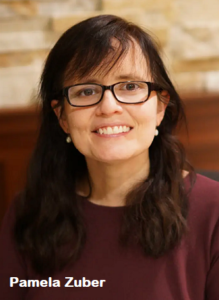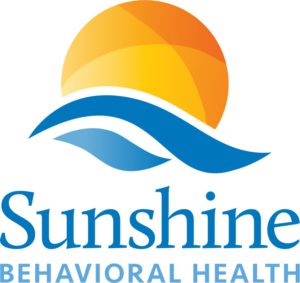Tagged: “injustice”
I hear a popular expression these days that is called “ghosting.” I am not exactly sure what that means, but I suspect it refers to someone who is just not there for you. I have such an issue now with a partner, who is quickly acting as if he wants to be my ex-partner. Can you help me understand this issue of “ghosting”?
Yes, as is the case with a recent question to me about the family as a forgiving community, I have written an essay at the Psychology Today website on the issue of ghosting and forgiveness here:
https://www.psychologytoday.com/us/node/1114772/preview
Do I always have to reach out to the one who hurt me? What if this person was tremendously mean to me such that I am re-traumatized when I meet this person? Would it be better then not to interact with this person?
You need not reach out directly to the one who hurt you if you are re-traumatized by meeting this person. You can reach out indirectly by donating some money to a charity in the person’s name or by saying a kind word about the person to others. When you forgive, you need not reconcile with the other if in doing so you are harmed.
You talk about uncovering repressed memories so that the anger can come out. Yet, is it ever advantageous to keep some repression, or not remembering the details of what happened to me?
Repression is a psychological defense mechanism of not remembering that which might be upsetting to you. Psychological defenses in the short run can be helpful in that they keep specific ideas about past trauma away from a person who is not ready to deal with those traumas. So, yes, in the short run it can be advantageous to repress (and people are unaware that they are repressing), but in the long run, if the repression is leading to pent-up anger and anxiety, it is best to uncover the events and the persons who caused the trauma so that forgiveness of the unjustly-acting person can begin.
If I start to forgive, I have to look back at the past, at what happened to me. I am afraid to do that as it opens up deep emotional wounds. What do you suggest?
When you forgive a person, you focus on the qualities of that person, including the effort to see this person as possessing inherent worth. Yet, you need not go back in your mind and dwell on the unjust event itself. Once you have determined that the actions were unjust, you then can set aside the details of the injustice against you as you forgive. A focus on the event is not the same as focusing on who this one is as a person.
How Forgiveness Can Eliminate Grudges and Improve Your Mental Health
Fights and disagreements are ubiquitous. At some point, even the most agreeable of us have argued with or felt betrayed by someone we love. After a major fallout, you may think you’re entitled to hold a grudge. After all, how else can you demonstrate your displeasure, hurt, and anger? But holding onto hurt feelings may hurt you more than anyone else, due to the negative effects long-term resentment can have on your mental health.
Negative Effects of Holding a Grudge
By definition, a grudge can be described as an ill feeling or resentment toward someone who has wronged you in some way. Although others may not blame you for holding a grudge, you’re more likely to suffer from your feelings of resentment than anyone else.
Grudges can lead to negative feelings such as anger, sadness, bitterness, confusion, and hatred, which may grow stronger over time. These feelings won’t improve your outlook on the situation or resolve the issues that lead to the initial resentment. They can, however, cause you physical and mental harm.
Studies show that harboring a grudge or resentment can seriously impact your physical and mental health. Negative, resentful feelings not only rob you of peace and happiness, but they can also creep into the workplace, your social life, or personal relationships. The longer you hold a grudge, the more angry, bitter, and resentful you can become, until you have little happiness or positivity left in your life.
According to Dr. Charlotte vanOyen-Witvliet, a professor of psychology at Hope College and a leading researcher on the mental impact of holding grudges, the negative effects of grudges outweigh the reasons you may have for continuing to harbor ill will toward offending parties. “When people think of their offenders in unforgiving ways,” she says, “they tend to experience stronger negative emotions and greater [physiological] stress responses.”
In a 2010 study documented in the journal Social Psychiatry and Psychiatric Epidemiology, researchers reported that those who held long-term grudges had higher levels of hypertension, heart disease, ulcers, headaches, arthritis, and chronic pain than those who didn’t hold any. Holding a grudge thus seems to produce negative health consequences.
Is Forgiveness the Answer?
Forgiveness is making a conscious decision to let go of a grudge along with the negative feelings of resentment, anger, and revenge against those you feel have done you wrong and striving to offer goodness of some kind to them. You may still feel the perpetrator was at fault, but you no longer harbor negative emotions or attitudes toward him or her.
When you forgive people, you don’t necessarily excuse or condone their hurtful actions or behavior or need to “kiss and make up.” But by choosing forgiveness, you’re attempting to rid yourself of deep-seated negativity that could be keeping you from moving forward and living a happy, productive life.
Embracing forgiveness can help you restore peace, satisfaction, and positivity. You’ll no longer be defined by negativity, depression, or stress, but by your ability to rise above those feelings and move forward.
For some people, forgiveness comes naturally. For others, it requires more work. Once you’ve made the commitment to forgive, however, you might find yourself harboring fewer negative feelings and adopting a more positive outlook on life as Dr. Robert Enright details in his self-help books The Forgiving Life and 8 Keys to Forgiveness.
Anyone can choose to forgive and adopt a grudge-free lifestyle. In fact, according to a Fetzer Institute survey, approximately 62% of American adults said that they wanted more forgiveness in their lives.
Benefits of Forgiveness
Forgiveness can be a major force for good in helping people overcome grudges and regain peace of mind. It can help release the stranglehold that resentment has on your life so that it no longer defines you or influences your decisions.
Through forgiveness, you can put negativity behind you and look forward to improved mental, physical, and emotional health as well as a brighter future. In time, you may gain a greater understanding of why people act the way they do and learn to have compassion and empathy for those who have done you wrong.
Whether you’ve been harboring a long-term grudge against someone or have developed one recently, forgiveness could be the answer you need to get over your grudge and proceed. Forgiveness can benefit you in the following ways:
- Greater happiness – Forgiving others can release the hold of depression and sadness in your life so you can experience the joy of living again.
- Improved mental health – Through forgiveness, you can replace negativity with positivity, enabling you to enjoy a positive outlook on life. Positive thoughts, mindsets, and attitudes will follow to keep you on a positive path.
- Improved physical health – Negative feelings from a grudge can impact your physical health, causing high blood pressure, increased heart rate, stress, anxiety, ulcers, and more. When you forgive, your body no longer feels the ill effects of negativity, enabling you to benefit from better health. Forgiveness can also have a positive impact on your immune system, making you less susceptible to sickness and disease.
- Better relationships – Holding a grudge undermines your desire to love and trust others. This can cause ill will between you and your friends, relatives, or spouse. Forgiveness can end this cycle and promote greater connectivity with others, so you can build more stable friendships and more loving relationships.
You can’t change the traumatic circumstances in your past that led you to hold a grudge. You can, however, create a happier, more productive future by choosing to forgive. Through forgiveness, you can let go of the past and look forward to the future.
 This article was written by Pam Zuber, Editor|Author|Content Writer at Sunshine Behavioral Health. She has written similar educational pieces for various publications including Minority Nurse, Sivana East, and the UAB Institute for Human Rights.
This article was written by Pam Zuber, Editor|Author|Content Writer at Sunshine Behavioral Health. She has written similar educational pieces for various publications including Minority Nurse, Sivana East, and the UAB Institute for Human Rights.
Sunshine Behavioral Health, headquartered in San Juan Capistrano, CA, provides care, treatment,  and recovery therapeutics for individuals facing substance abuse, addiction, and mental health disorders. With a network of facilities in California, Colorado, Illinois, and Texas, the group offers inpatient rehab centers, outpatient treatment, and sober living homes.
and recovery therapeutics for individuals facing substance abuse, addiction, and mental health disorders. With a network of facilities in California, Colorado, Illinois, and Texas, the group offers inpatient rehab centers, outpatient treatment, and sober living homes.



